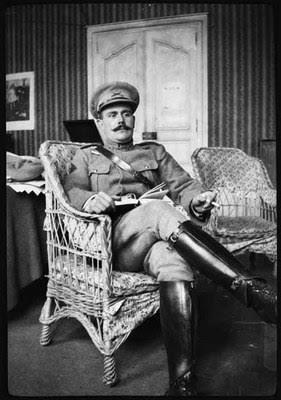(Sunday, May 11, 2025) – In a meaningful and historic ceremony, the International Observatory of Human Rights (OIDH), in partnership with B’nai B’rith Portugal, posthumously honored Captain Arthur Carlos de Barros Basto, a decorated military hero, pioneering Jewish leader, and symbol of resilience and identity.
Captain Barros Basto is often called the “Portuguese Dreyfus” because, like Alfred Dreyfus in France, he was a loyal military officer who faced unjust persecution and expulsion from the army due to antisemitism. In 1937, he was unfairly stripped of his army rank after a secret military trial, based on anonymous slander that masked underlying anti-Semitic motives. His dismissal followed his efforts to help descendants of Jews return to Judaism, which provoked hostility from conservative and religious sectors of Portuguese society.
The tribute was formalized through the presentation of a certificate of recognition by Luís Andrade, President of the International Observatory of Human Rights, to the family of Captain Barros Basto at the headquarters of B’nai B’rith Portugal in Porto.
“Captain Barros Basto is more than a historical figure,” said Andrade during the ceremony. “He is a timeless example of how personal sacrifice, national and cultural pride, and moral conviction can shape a better, more fraternal world. His legacy inspires us all to act with integrity and vision.”
Captain Barros Basto was recognized for his extraordinary life’s work and enduring legacy as a hero of World War I, for which he was decorated for acts of bravery and survived deadly poisonous gas attacks in Flanders. He was also a founder of the modern Jewish Community of Oporto in 1923 and succeeded in rallying global Jewish philanthropy to restore Jewish life to the city after more than four centuries of absence.
“My grandfather didn’t just deal with what’s beautiful in the world,” said his granddaughter Isabel lopes, the vice president of the community in Porto that Captain Barros Basto founded. “He also had to deal with the lowest elements of society, with slanderous anonymous letters, with the police raiding his house and frightening his children. My mother often saw him crouched in his house, with his head on his knees, crying out for divine justice.”
In honoring his memory, the OIDH and B’nai B’rith Portugal emphasized Captain Barros Basto’s role as a beacon of perseverance in the face of adversity, and as a guiding light for those dedicated to the pursuit of human dignity and collective progress.
“Barros Basto represents the synthesis of the Jewish and non-Jewish world at the beginning of the 20th century,” said President of B’nai B’rith Portugal, Gabriela Cantergi. “He founded an official community together with Ashkenazim, built a monumental synagogue with the support of the Sephardic diaspora, and even tried to rescue hundreds of people who lived in remote regions of Portugal to formally become Jewish, traveling great distances on foot, on horseback or by train. So many worlds within one man.”
The significant ceremony reaffirms Portugal’s growing recognition of Jewish heritage and the vital role of courageous individuals in shaping history toward justice and renewal.
Israel’s Ambassador to Portugal Oren Rozenblat, also spoke in tribute. “The Mishna in Pirkei Avot says in the name of Hillel that ‘In a place where there are no men, strive to be a man’. This represents the great work of Captain Barros Basto. He strived to be a man or as we say, a mentsch, in a place where if he hadn’t realized his remarkable work, there was no one else to do it.”
Other dignitaries included Jewish communal figures, academics and military figures.
“It is important to show this man was the best of the best in the Portuguese Army,” said Admiral Silva Ribeiro, an Admiral of the Portuguese Navy, former Chief of the General Staff of the Armed Forces, National Commander of the Maritime Police and former Chief of Staff of the Navy and the National Maritime Authority. “Captain Barros Basto was an exemplary officer.”
Portuguese historian Jorge Martins, who devoted much time to studying the life and work of Barros Basto, said that:
“More than the rescue of Judaism in Portugal, the ‘Portuguese Dreyfus initiated the rescue of the Jewish Portuguese identity lost since the prohibition of Judaism by the expulsion decree of 1496, violated by the forced baptism of 1497 and persecuted by the Inquisition from 1536 onwards. Barros Basto stirred the country and the world to the need for Portugal to recover its Jewish component, which already existed before the Portuguese kingdom’s official foundation and contributed greatly to its birth and flourishing.”
Isaac Assor, a member of B’nai B’rith Portugal, said:
“My late father of blessed memory, who was the rabbi of the Jewish community in Portugal for half a century, used to say that Basto was ahead of his time. Today we see how correct those words were. Captain was a visionary who predicted the immense light that the current Jewish community in Porto would spread.”
João Rebelo, a former Portuguese MP who was personally involved in morally rehabilitating the captain in 2012, said that:
“Remembering Captain Barros Basto is remembering the courage and dignity of a great Portuguese patriot. He was always a reference for many in the defense of Portuguese Jews. Even today, his legacy continues to inspire thousands of people. In an unacceptable stain that shames our country, justice has not yet been fully restored to him, because his just reinstatement in the army is still pending. It will never be too late to do justice to a great man of Portugal.”




